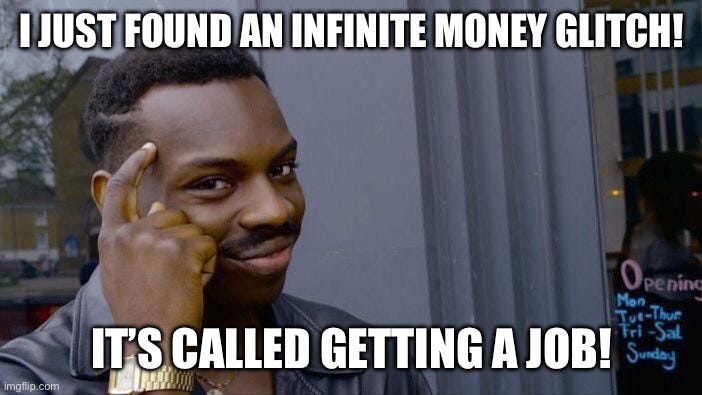Bitcoin Tech Talk #446
Interesting Stuff
Boomer Legacy - This is a long, thoughtful and mostly fair essay about the generation that everyone loves to hate, the Baby Boomers. What was striking to me about the essay was not the obvious cultural changes that the Boomers brought about, but the forces that shaped their generation, largely sociological in nature. The author makes a point of pointing out some of this generation’s best attributes (working hard) and some of its worst (refusing to plan for the future). My only gripe is that there wasn’t much tracing of their excesses to the dollar’s reserve currency status and the subsequent fiat money system that penetrated all of these institutions.
Authoritarianism Disguised as Kindness - The article is aptly titled “The Myth of Liberal Empathy” and traces the more conservative turn that much of the world has made since COVID and the authoritarianism that we saw. What was striking to me was how so much of what passes as kindness is propaganda and framing. It’s a pernicious way to introduce all manner of evil as being magnanimity, particularly when it comes to economic matters. What a significant portion of the non-Cantillon-winning world realized as a result of the past 7 years is that calls to kindness are an attack surface by which authoritarianism sneaks in from the left. This is in contrast to authoritarianism from the right which is almost always coded as safety.
Gaslightenment - Speaking of propaganda is a perceptive essay on how we’re being manipulated. If you think propaganda is just a bunch of lies told by the media, this is a very crude and weak understanding of what it actually does. As this essay shows, the purpose isn’t so much to get you to believe a lie, it’s to confuse you and get you to believe different contradictory things at different levels. We see this kind of incoherence a lot in politics where a BLM supporter will deny that the protests were violent but at the same time express happiness that there is violence happening. The art of propaganda these days is very much along the lines of the article where it fluctuates between two different messages, one specific and one abstract, both of which are purposefully inconsistent with each other.
Signals are Reality - This is an essay written by a right-leaning academic (a very rare creature, indeed) about how people present themselves versus what they believe. Essentially, he’s saying that you should mostly ignore what people say and watch what people do. So when you see Zuckerberg presenting himself as a more traditional man, it’s a more real presentation of who he is than what he says he believes. And according to the article, in many ways you become what you present yourself as. Perhaps physiognomy hits on this truth at a biological level.
Clueless Solutions - The essay is about marriage and birth rates, and it comes from the perspective of a married woman with kids who attended a conference. As she writes, the people on stage that were trotting out the supposed solutions had very little clue as to the actual problem. While she’s mostly speaking about marriage and the dating market, I saw it as a much bigger problem of solution making in general. Almost everyone involved in crafting legislation or regulation is not directly affected by them. They may get experts and constituents to advise and testify, but the real reason most centralized solutions don’t work is because they are just not that close to the problem.
What I'm up to
Rational Trigonometry - I did not expect to go down this rabbit hole this week, but thanks to Giacomo, I did. You can do trigonometry without sine, cosine, pi and even square roots. I read and watched enough of this stuff that I started questioning the reality of “real” numbers and whether set theory is the correct foundation to base math on (particularly the axiom of infinite sets). This isn’t going to be that interesting to those that weren’t math majors, but my computer science mind is blown by how elegant projective coordinates are for geometry.
TGFB Luncheon - Get your tickets for the TGFB luncheon before the main conference on May 27! I will be giving a half hour talk and there will be lots of meat.
BTC Prague - I will be in Prague June 19-21 for the biggest European Bitcoin conference. It looks like I’ll have a keynote tying the price of Bitcoin to its decentralization, and I will also be participating in a debate about the long term security budget for Bitcoin. Both should be a lot of fun and I’m very much looking forward to them.
Nostr Note of the Week
What I’m Promoting
Bitcoin
Wallet Matrix - Bitcoin OP Tech has published a wallet feature matrix that you can filter and sort through. Among other things, you can find which wallets support P2TR, for example. There’s a lot of features that you can find specific info for, like BOLT12 Lightning support and Full RBF notification. You can see, for example, that Casa is pretty far behind on supporting features from the last 5 years, whereas Sparrow and Nunchuk are pretty good. The only gripe I have is that it’s only showing this data for 10 wallets.
Descriptor Backup Scheme - Descriptors have this half-way quality about them in the sense that they’re not as critical from a privacy/security perspective as private keys, but they’re also not something you want public. Backing them up is in general a good idea as they’re a critical part of any multisig setup. But it’s also not great to put them out there unencrypted as an attacker would then know a lot more about your setup and more pertinently, how much you have locked to what. This is what the post is trying to solve and is doing so using symmetric cryptography. There’s some user-secret that encrypts the descriptor. It’s a good discussion to read because it does display a lot of the tradeoffs of backing things up.
Carbyne - A new paper describes a different mempool scheme for Bitcoin nodes, dramatically reducing the memory consumption of nodes but requiring a bit more computation. Currently Core defaults to 300MB of mempool in RAM, which using Carbyne can be reduced to 3MB. The main mechanism to so dramatically reduce the RAM needs is by using Bloom filters and being satisfied with 99.9% accuracy processing and forwarding transactions, not 100%. The idea is cool, though I’m a bit skeptical about how much resilience this adds to nodes, given they can run block-only mode.
Lightning
Lightning Profitability Calculator - I’ve been around long enough to remember when Lightning folks were claiming that routing nodes’ profits were the closest thing to a riskless rate of return that you could get. That might still be true, but as this calculator reveals, it’s not all that high at less than 1.5%. That said, it is in Bitcoin terms, and there are a lot of assumptions involved, which is why the calculator has a lot of inputs, so maybe it’s not so bad.
Hydrus - This is a liquidity management agent that you can run on your Lightning node. When I read that it was an agent, I was hoping for some interesting AI-powered channel liquidity manager, but alas, that’s not the case. It does do everything in the background without you having to manage channels actively, so in a sense, it’s probably half-way there. Someone will come up with a way to automate and maximize profit on something like this using AI.
Sparky Hub - This is an experimental lightning wallet with Nostr-Wallet-Connect support that the Alby team made to showcase Spark, their L2 that integrates lightning. It’s impressive that the team was able to make a functional lightning wallet in two days, even if they used AI to help with it. What’s clear to me is that there’s a real race between a bunch of lightning companies (Breez, LDK, Alby, Voltage, etc) to become the lightning infrastructure provider.
Economics, Engineering, Etc.
Twenty One - Looks like Strategy won’t be the only company that’s taking advantage of the infinite money glitch. Led by Cantor Fitzgerald, Tether and Softbank, this is a new company that already has 42,000 BTC out of the gate to essentially do what Strategy has been doing. Jack Mallers, CEO of Strike, will lead this company as well. Though he’s young, he’s well suited for this role, given how familiar he is with Bitcoin, financial products and exchange dynamics from his family. Given just how much interest there is in Strategy options and other derivative products, I imagine this company will have plenty of interest from all sides.
Antoine Riard vs Chaincode - A bit of drama between the core contributor and Chaincode Labs, which Antoine documents in the link I’ve posted. Apparently, there’s a lot of beef between these two including lawyer letters and lawsuit threats. The main issue seems to be around a “code of conduct” put into the project in the last couple of years, which Chaincode employees added to Bitcoin Core with Antoine opposing. There’s definitely more to the story that I’m not privy too, but this is definitely putting some of the coordination around Core development to the test.
Quantum Migration - Regular readers of this newsletter know that I’m extremely skeptical of any quantum computing claims, and this is a BIP that addresses what I think is a remote possibility, that of quantum computers being able to spend legacy P2PK outputs. The proposal is essentially to give users a deadline by which to move to quantum-resistant outputs and then burn the outputs which are not. It’s a reasonable solution if Bitcoin were centralized, but in a decentralized context, is this really the right way to do things? It leaves some interesting questions about how we move forward in the face of some technical vulnerability.
Quick Hits
6556 BTC - Another week, another half billion worth of Bitcoin into Strategy’s treasury.
330 BTC - Another week, another $27M worth of Bitcoin into MetaPlanet’s treasury.
Tether now owns 10% of Juventus - The stablecoin company apparently already had some ownership stake, which has recently increased to 10%.
Tariff Bull - Arthur Hayes thinks that we’re going to the moon as a result of tariffs.
Fiat delenda est.







